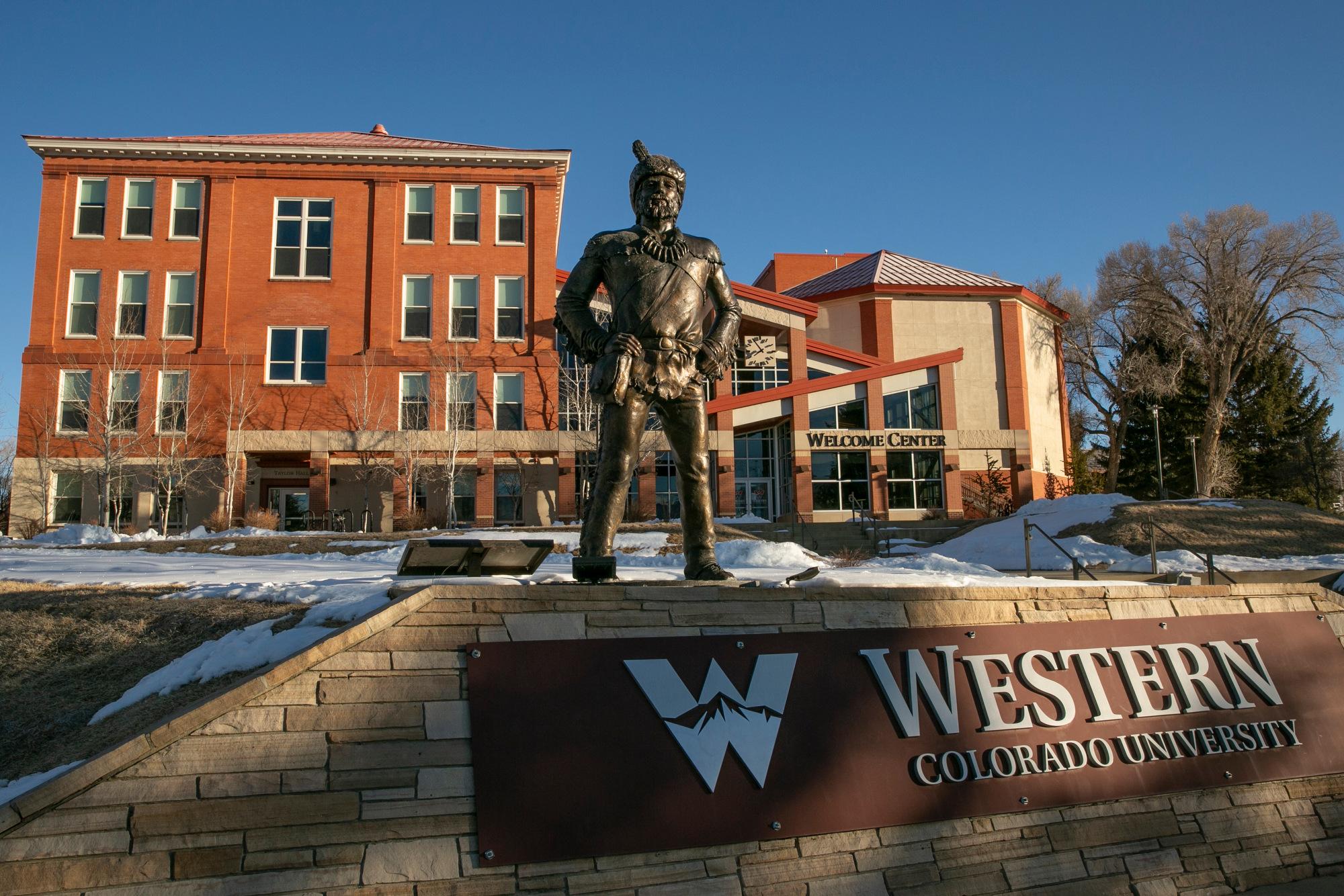
The president of Western Colorado University in Gunnison will keep his job, despite a large portion of the faculty voting for him to be fired. WCU’s board of trustees released their decision Tuesday night, following controversy over views President Greg Salsbury shared about the storming of the U.S. Capitol.
In an email sent to all employees Jan. 7, one day after the siege, Salsbury described “despicable acts of violence” that took place at the Capitol. He wrote that the university supports the First Amendment but condemns the riot “in the strongest of terms.”
But later in the same paragraph, Salsbury pivoted to nationwide protests, which some faculty took to mean racial justice marches and demonstrations — 2020’s largest-scale protest movement by far. These protests were sparked by the police killings of Black people, including George Floyd in Minneapolis, Breonna Talylor in Louisville and Elijah McClain in Aurora.
“Over the last year, rioting, burning, looting, and violence have emerged from protests across our country – resulting in seemingly endless confrontations, destruction of entire cities, properties, serious injuries, the public’s overall sense of security, and deaths,” Salsbury wrote.
There were several deaths and large-scale property damage associated with some racial justice protests over the summer. The Minneapolis Star Tribune estimates rioting that followed Floyd’s death caused $500 million dollars in public and private property damage across the city.
However, “destruction of entire cities” did not take place, which WCU faculty’s governing body pointed out when they issued their decision to ask for Salsbury’s termination. In fact, Colorado’s racial justice protests were largely peaceful, including demonstrations in Gunnison and across the Western Slope.
On Feb. 22, the WCU Faculty Senate approved a resolution asking for new leadership. The request won support from 56 percent of faculty members approved to vote. In their resolution, the senate described Salsbury’s leadership as lacking in several areas.
“[Salsbury] is not committed to diversity, equity, and inclusion,” the senate wrote, and does not show “a willingness to reflectively listen, learn from others with opposing views, and grow.”
The Jan. 7 letter was described as the latest instance in a pattern of Salbury’s apparent lack of awareness on social issues. The senate also brought up Salsbury’s 2016 letter to the editor of “The Chronicle of Higher Education.” In it, he posed the question of whether universities’ acceptance of students’ “self identification” of gender would also require schools to accept whatever race students identify with — essentially saying students might lie about their ethnicity in order to get accepted to school.
“Please pardon the cynicism, but it is easy enough to see that if applicants understand that their chances of admission are increased by identifying with a particular ethnicity or race, we might well see a spike in such ‘self identification,’” Salsbury wrote.
Ultimately, the decision of whether to retain Salsbury was not up to faculty, but to the board of trustees. Its members chose to back the president. In their Tuesday night statement, they wrote that they support President Salsbury but also acknowledge the concerns brought up by the faculty. The board also restated its commitment to “prioritize diversity, equity and inclusivity.”
The board looks forward to “fostering unity through transparency and accountability, bringing together the best efforts of the Board, the President, Faculty, students, and the entire WCU Community, to lead Western successfully into the future,” the statement read.
Salsbury has not publicly commented on his retention, but he has previously addressed the controversy surrounding his comments on the Capitol siege. In a statement released earlier in March, he described “many untruthful statements” that have been publicized about him and WCU, and he said he’s grateful for support he’s received from some faculty and members of the community.
“I am encouraged to continue moving Western forward and invoking the needed changes that Western and Colorado deserve.”









